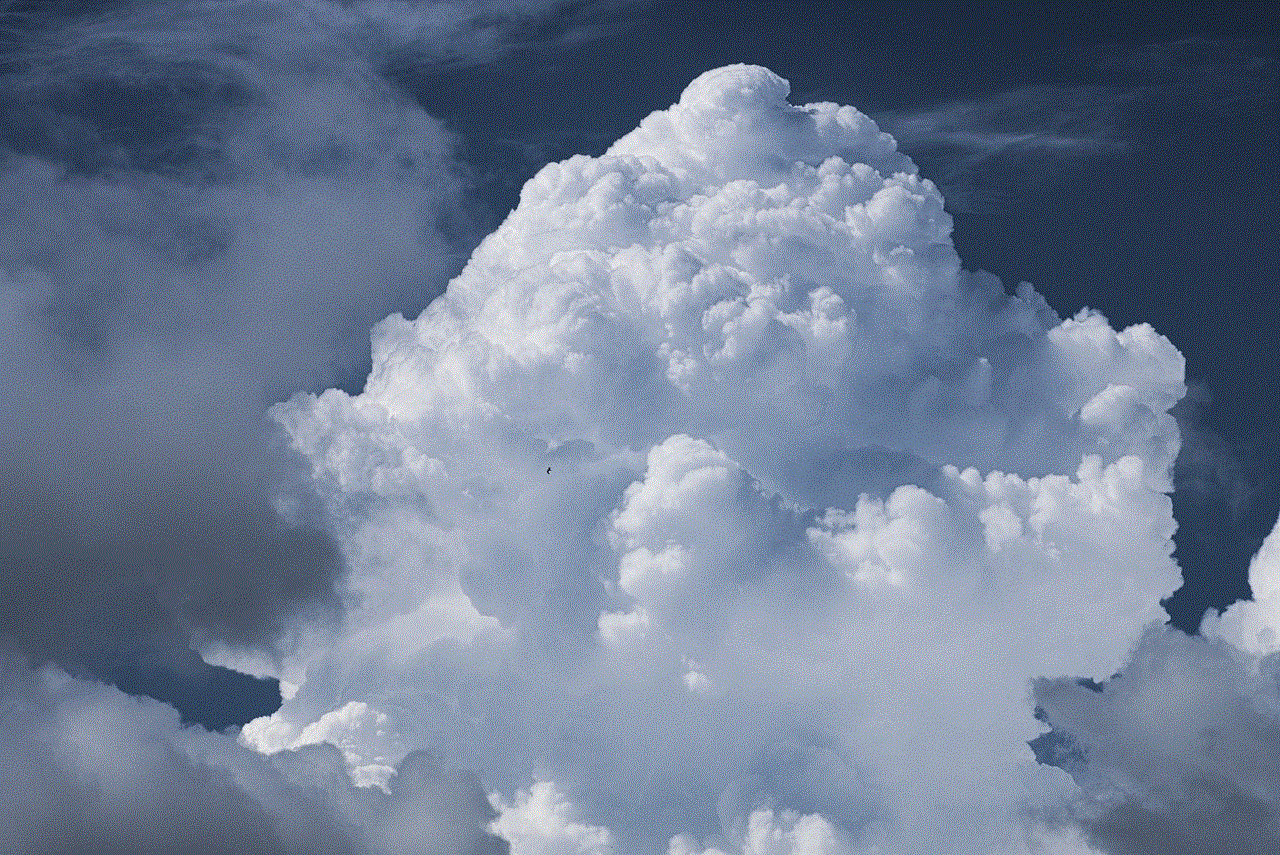blocking and unblocking on facebook
# Understanding Blocking and Unblocking on Facebook: A Comprehensive Guide
Facebook has become a cornerstone of social interaction in the digital age. With over 2.8 billion active users, it serves as a platform for sharing experiences, connecting with friends, and engaging with communities. However, as with any social media platform, interactions can sometimes lead to conflict, misunderstandings, or unwanted communication. This is where the features of blocking and unblocking come into play. In this article, we will explore the intricacies of blocking and unblocking on Facebook, the reasons one might choose to use these features, and the implications of doing so.
## The Concept of Blocking on Facebook
Blocking is a feature that allows users to prevent specific individuals from interacting with them on Facebook. When you block someone , they can no longer see your profile, send you messages, tag you in photos, or interact with your posts. This feature is particularly useful for maintaining personal boundaries and protecting one’s mental well-being in a social media landscape that can sometimes feel overwhelming.
The blocking process is simple. Users can navigate to the profile of the person they wish to block, click on the three dots located on the cover photo, and select “Block.” A confirmation prompt will appear, ensuring that the user is certain about their decision. Once blocked, the individual will not receive any notification about the block, which helps to avoid potential confrontations.
## Why People Choose to Block Others
There are myriad reasons why individuals might choose to block someone on Facebook. Understanding these motivations can shed light on the complexities of online relationships.
### 1. Protecting Personal Space
One of the primary reasons for blocking someone is the need to preserve personal space. In an era where privacy is often compromised, users may find themselves uncomfortable with certain individuals viewing their posts or sending them unsolicited messages. Blocking becomes a tool for reclaiming control over one’s online environment.
### 2. Preventing Harassment
In some cases, users face persistent harassment or bullying on social media. Whether it’s through unwanted messages, comments, or tagging, this behavior can lead to significant emotional distress. Blocking the perpetrator can serve as a necessary measure to safeguard mental health and well-being.
### 3. Managing Conflict
Social media platforms like Facebook can sometimes exacerbate conflicts that originate offline. When disagreements escalate, blocking can serve as a means of de-escalating the situation. By removing the ability for the other party to engage, individuals can create a buffer that allows them to process their feelings without external pressure.
### 4. Cutting Ties with Toxic Relationships
Many users find themselves in relationships that are unfulfilling or toxic. Whether it’s an ex-partner, a former friend, or a family member, the ability to block someone can facilitate moving on. It allows individuals to sever ties without the awkwardness of a direct confrontation.
### 5. Reducing Anxiety
For some, social media can be a source of anxiety, particularly if they feel they are being judged or scrutinized by others. By blocking individuals who contribute to that anxiety, users can create a more positive and supportive online environment.
## The Process of Unblocking on Facebook
While blocking is a straightforward process, unblocking someone is equally simple, yet it comes with its own set of considerations. Users who have previously blocked someone may find themselves in situations where they wish to reconnect. Unblocking allows for renewed interaction, but it’s essential to understand the implications.
To unblock someone on Facebook, users can go to their settings, select “Blocking,” and find the list of blocked users. From there, they can choose to unblock the desired individual. Once unblocked, the person can once again see the user’s profile, send messages, and interact with their posts. However, it’s important to note that unblocking does not automatically add the person back to the user’s friends list; they must send a new friend request to reconnect.
## Reasons for Unblocking
There are several reasons why individuals might decide to unblock someone on Facebook. Here are a few common scenarios:
### 1. Rebuilding Relationships
As time passes, feelings can change. Users may find that they miss the connection they once had with a person they blocked. Unblocking allows the opportunity to rebuild the relationship, whether it’s a friendship or a family bond.
### 2. Moving Past Conflict
In some cases, conflicts that led to blocking may resolve over time. Individuals may find it beneficial to reconnect with those they previously blocked, especially if they believe that the issues can be addressed and overcome.
### 3. Networking Opportunities
In the professional realm, networking can be crucial for career advancement. If a user has blocked someone who could potentially benefit their career—such as a former colleague or business partner—they may choose to unblock them to explore new opportunities.
### 4. Curiosity
Human nature often drives individuals to seek closure or understanding after a fallout. Unblocking someone may stem from a desire to see how they are doing or to gain insight into their current life circumstances.
### 5. Changing Perspectives
Life experiences can alter perspectives, leading individuals to reconsider their past decisions. What once seemed like a good reason to block someone may no longer hold weight, prompting users to unblock them and foster a connection.
## The Emotional Impact of Blocking and Unblocking
The decision to block or unblock someone on Facebook can evoke a range of emotions. For some, blocking can bring relief and a sense of empowerment, while unblocking may bring about feelings of vulnerability or anxiety. Understanding these emotional responses can aid users in navigating their online relationships more effectively.
### 1. Relief and Empowerment
Blocking someone can provide immediate relief from unwanted interactions. It empowers individuals to take control of their online presence, allowing them to curate their social media experience according to their preferences. This sense of agency can lead to improved mental health and overall well-being.
### 2. Guilt and Regret
On the flip side, blocking someone can also lead to feelings of guilt or regret. Users may worry about how the other person is feeling or whether they made the right decision. This emotional turmoil can be particularly pronounced if the individual has a history of close friendship or familial ties.
### 3. Anxiety and Vulnerability
When unblocking someone, individuals might feel anxious about how the interaction will unfold. They may worry about potential conflict or the other person’s reaction. Navigating this vulnerability can be challenging, particularly if the previous relationship was fraught with tension.
### 4. Ambivalence



In some cases, individuals may feel ambivalent about their decisions to block or unblock. They may recognize the necessity of protecting their mental health while also grappling with feelings of loneliness or loss that come with severing ties.
## Navigating the Social Dynamics of Blocking and Unblocking
The social dynamics surrounding blocking and unblocking on Facebook can be intricate. Users must consider the implications of their actions not only for themselves but also for others involved. Understanding these dynamics can help individuals navigate their online relationships more effectively.
### 1. The Ripple Effect
Blocking someone on Facebook can create a ripple effect within social circles. Friends or mutual acquaintances may notice the change and could feel compelled to take sides or intervene. This dynamic can complicate relationships and lead to further conflict.
### 2. Communication is Key
Before blocking someone, it may be beneficial to communicate feelings directly. While this may not always be possible, open dialogue can sometimes resolve issues without resorting to blocking. This approach can help maintain relationships and prevent misunderstandings.
### 3. Setting Boundaries
Users should view blocking as a means of setting boundaries. It’s essential to establish what types of interactions are acceptable and what crosses the line. By doing so, individuals can foster healthier relationships both online and offline.
### 4. Respecting Others’ Decisions
When someone chooses to block or unblock, it’s important to respect their decision. Trying to pressure someone into reconnecting can lead to further conflict and resentment. Understanding and respecting boundaries is vital for maintaining healthy relationships.
## Conclusion: The Power of Choice in Online Interactions
Blocking and unblocking on Facebook serve as powerful tools for managing personal interactions in a digital world. These features empower individuals to take control of their online experiences, protect their mental health, and navigate the complexities of social relationships. Whether choosing to block someone for self-preservation or unblocking in the spirit of reconciliation, users must be mindful of the emotional implications and social dynamics at play.
As social media continues to evolve, the importance of communication, boundary-setting, and respect for others’ choices will remain paramount. By understanding the intricacies of blocking and unblocking, users can navigate their online interactions with confidence and clarity, fostering healthier relationships in both the digital and real worlds. In a space where connections are just a click away, the power to choose who we interact with is more significant than ever.
instagram posts you liked
# Exploring the Impact of Instagram Posts You Liked: A Deep Dive into Digital Engagement
## Introduction
In the age of social media, where platforms like Instagram dominate our digital interactions, the concept of engagement has taken on new dimensions. One of the most intriguing aspects of Instagram is the ‘likes’ feature, which allows users to express appreciation for the content they encounter. However, the posts you like on Instagram do more than just fill up your profile; they offer a window into your interests, preferences, and even your personality. This article explores the significance of the posts you liked, examining their impact on your online identity, mental health, social connections, and the broader digital landscape.
## The Psychology of Liking
At its core, the act of liking a post involves a psychological response. When users scroll through their feeds, they are bombarded with a plethora of images, videos, and stories. The decision to ‘like’ is often instantaneous, reflecting both conscious and subconscious desires. Research suggests that the brain’s reward system is activated when we receive likes, creating a dopamine release that reinforces the behavior. This psychological mechanism drives users to curate their feeds and engage with content that resonates with their emotional states, desires, or aspirations.
Understanding the psychology behind liking can shed light on why certain posts garner more attention than others. For instance, posts that evoke happiness, nostalgia, or inspiration tend to receive higher engagement. Users often seek out content that reflects their values or aspirations, which can lead to a curated digital identity that may not fully align with their offline selves.
## The Art of Curation



Your Instagram feed is more than just a collection of images; it’s a curated portfolio of your tastes, interests, and social interactions. The posts you like contribute significantly to this curation. By liking posts, you are essentially telling the algorithm what content resonates with you, which in turn shapes your feed. This process can create an echo chamber, where you are continuously exposed to similar content, reinforcing your existing preferences and beliefs.
Curating your likes can also serve as a form of self-expression. Users often gravitate towards posts that align with their identities, whether that be through aesthetics, lifestyle choices, or political beliefs. This selective engagement allows individuals to create a narrative about themselves that they wish to convey to their followers, leading to a carefully constructed online persona.
## The Social Connection
In a world that increasingly values social connections, Instagram serves as a powerful tool for maintaining relationships. The posts you like can reflect your social circles, indicating who you interact with and what interests you share. Liking a friend’s post can strengthen that connection, showing support and appreciation for their content. It’s a digital nod, a way to say, “I see you, and I value what you share.”
Moreover, the posts you like can also influence your social interactions beyond the platform. For instance, if you frequently like posts related to a particular hobby or interest, you may find yourself engaging in conversations about those topics in real life. This phenomenon illustrates the relationship between online and offline identities, demonstrating how social media can bridge gaps and foster connections.
## The Influence of Algorithms
Instagram’s algorithm plays a pivotal role in shaping the content you see and engage with. By analyzing the posts you like, the algorithm curates your feed, prioritizing content that aligns with your interests. This raises questions about the extent to which users are aware of their engagement patterns and how they may be manipulated by the platform’s design.
For instance, if you find yourself liking a specific type of post—such as fitness inspiration or travel photography—you may inadvertently limit your exposure to diverse content. This can create a narrow worldview, as the algorithm favors what you have previously engaged with. On one hand, this personalization enhances user experience, providing relevant and interesting content. On the other hand, it raises concerns about the potential for echo chambers and the reinforcement of biases.
## Mental Health Implications
The relationship between social media engagement and mental health is a topic of ongoing research. While liking posts can create a sense of community and belonging, it can also lead to negative emotions, particularly when users compare their lives to the seemingly perfect lives displayed in their feeds. The posts you like may reflect an aspirational lifestyle, leading to feelings of inadequacy or envy.
Moreover, the pressure to curate a feed that garners likes can result in anxiety. Users may feel compelled to post content that aligns with trends or expectations rather than sharing authentic moments. This disconnect can contribute to a cycle of validation-seeking behavior, where users become increasingly reliant on social media for self-worth.
## The Role of Influencers
Influencers have become a significant aspect of the Instagram ecosystem, shaping trends and driving engagement. The posts you like may include content from influencers who resonate with your interests, further emphasizing the role of social validation in the digital landscape. Influencers often curate their feeds to reflect aspirational lifestyles, and users may find themselves liking these posts as a way to connect with that ideal.
This dynamic can have both positive and negative effects. On one hand, influencers can inspire and motivate users, providing valuable insights and perspectives. On the other hand, the relentless pursuit of likes and validation can perpetuate unrealistic standards, leading to dissatisfaction and anxiety among users who feel they cannot measure up.
## The Evolution of Engagement
As social media continues to evolve, so too does the concept of engagement. The posts you liked in the early days of Instagram may have looked very different from those you engage with today. The platform has expanded to include features like Stories, Reels, and IGTV, each offering unique ways for users to express themselves and connect with others.
This evolution has altered the landscape of engagement. Liking posts may now take a backseat to other forms of interaction, such as commenting, sharing, or direct messaging. However, the significance of likes remains, serving as a metric of popularity and validation. Understanding this shift is crucial for users and marketers alike, as it informs strategies for engaging with audiences in an increasingly complex digital environment.
## The Future of Digital Engagement
As we look to the future, the nature of engagement on platforms like Instagram will continue to evolve. The posts you like may become part of a larger narrative, one that encompasses various forms of digital expression. The integration of augmented reality, virtual reality, and artificial intelligence could further transform how users interact with content, shaping what it means to engage online.
Furthermore, as users become more aware of the implications of their online behavior, there may be a shift towards more mindful engagement. Users might prioritize authenticity over popularity, seeking to connect with content that aligns with their true selves rather than what is trending. This potential shift could lead to a more positive digital landscape, where engagement is driven by genuine connections rather than superficial validation.
## Conclusion



The posts you liked on Instagram represent more than just a collection of digital interactions; they encapsulate your interests, emotions, and social connections. As we navigate the complexities of social media, understanding the implications of our engagement becomes increasingly important. From the psychological motivations behind liking to the impact on mental health, relationships, and the broader digital landscape, the act of liking is a multifaceted phenomenon that reflects our evolving relationship with technology.
In a world where social media continues to shape our identities, it’s essential to approach engagement with mindfulness and authenticity. By doing so, we can create a digital space that fosters genuine connections and enriches our lives, both online and offline. As we move forward, let us embrace the power of the posts we like, using them as a tool for self-discovery, connection, and positive engagement in the ever-changing landscape of social media.
